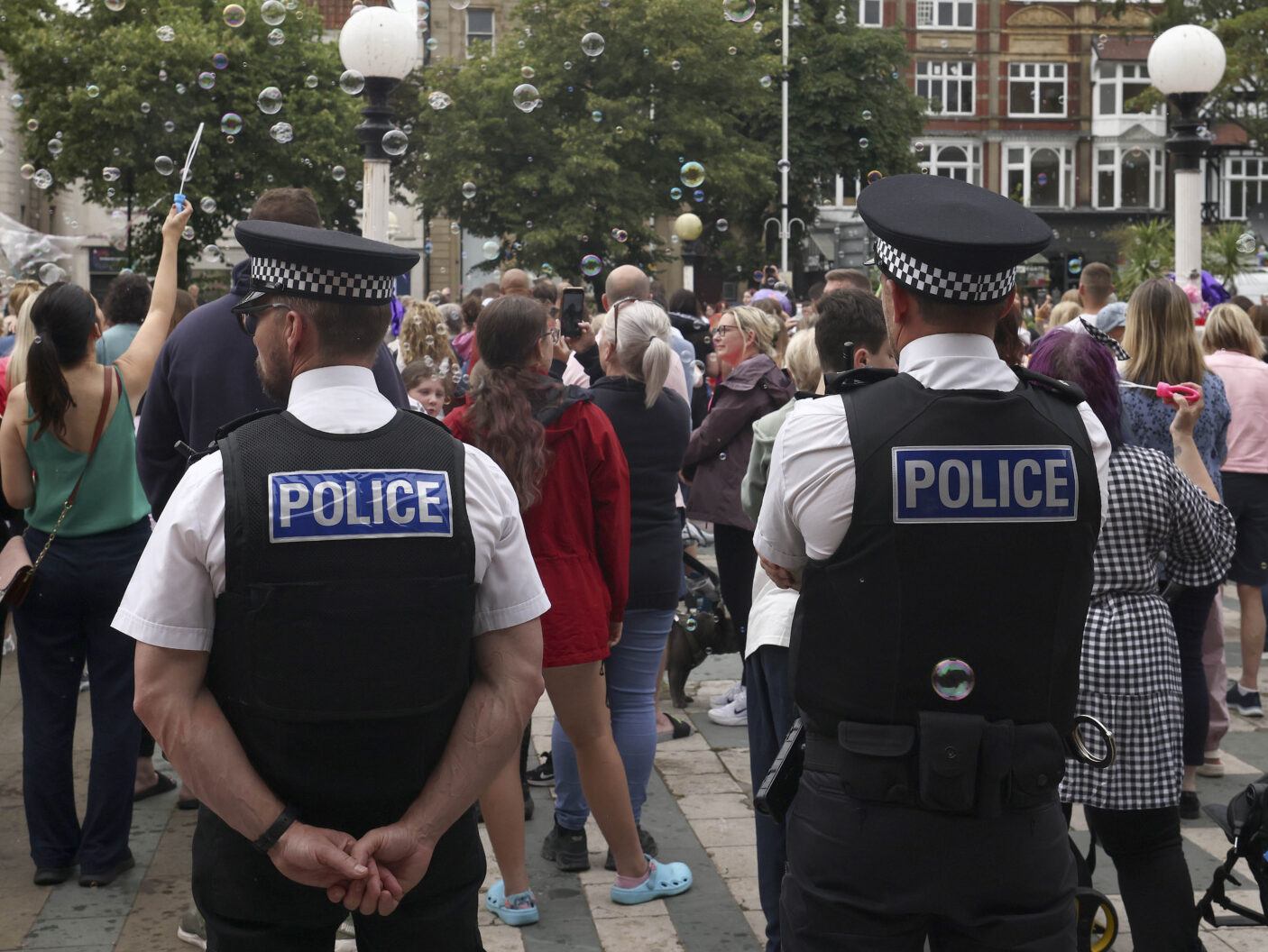Hero who tackled a knifeman during the Southport mass stabbing of children has spoken out to strongly criticise the Prime Minister’s handling of riots that followed, saying the underlying issues of mass migration are being ignored.
John Hayes is a businessman whose company offices are in the same building as the dance studio where 13 people were stabbed, most of them children including three who died, on Monday last week. He was hailed as a hero after early reports stated he had put himself in-between the knifeman and the intended victims, and having been recovering from the near-fatal wounds he sustained in the incident he has now spoken out for the first time.
Brushing aside any suggestion what he did was heroic, and stating he wished he could have done more to save lives, Hayes expressed distress at the heavy crackdown the British government of Sir Keir Starmer on the riots that followed the shocking attack, saying that fundamental, underlying concerns about mass migration were going unaddressed.
He told BBC radio on Wednesday morning: “I’m not particularly politically motivated, but I do get dismayed when I hear Keir Starmer and Yvette Cooper talking about [how] the police are going to come down with the full force of the law on these people.
“But they are not actually talking about the root cause, and they need to start listening and understanding that. They need to address the cause rather than the symptoms. Putting these guys in prison isn’t going to deal with the core issues.”
On these core issues, Hayes said: “There appears to be a strong undercurrent of discontent for some time about the levels of immigration. And this [mass stabbing] is just a catalyst or a trigger, but I don’t think it’s the root cause.”
The businessman — who just last week put himself in harms way to stop a mass-stabbing — was firm in insisting he doesn’t condone violence, but observed nevertheless “there’s an awful lot of unhappy people in this country at the moment that want something to be done and I don’t think until they government start to address that, this problem is going to go away.”
To hear the victim of a mass casualty attack speak out against government policy so publicly, and so soon after the assault, is extremely unusual in the United Kingdom. The government has years of sharply honed experience in forming a single narrative for the public after mass casualty attacks and incidents of ‘community violence’, possibly an outgrowth of the David Cameron-era interest in behavioural science to shape public perception, behaviour, and compliance without necessarily making obvious they are being manipulated.
The comments also came the same day as new polling that shows immigration is the most important policy area for British voters, with 51 saying it is a “top issues facing the country”.
Recounting the moment of the stabbing on Monday, which led to the deaths of six-year-old Bebe King, seven-year-old Elsie Dot Stancombe, and nine-year-old Alice Dasilva Aguiar, Hayes said he heard screaming while he was sitting in his office and got up to investigate. After hearing a colleague shout “there’s a girl outside bleeding out” he dashed out, only to be confronted by a man he described as holding a knife.
Hayes was stabbed in the thigh as he attempted to wrestle the blade off the man, a wound which “narrowly missed” his femoral artery. He said of his regret: “I would liked to have been more Bruce Willis about the whole thing, but I wasn’t able to get the knife off him. But I don’t believe he managed to hurt anybody else after, and I think in the interim period all the children had managed to evacuate the building, apart from those I believe who were locked in the toilet with one of the yoga teachers, so if nothing else I prevented him from doing any further harm.”
A suspect, 18-year-old Axel Rudakubana — whose birthday is today — was arrested last week and appeared in court on Thursday, charged with three counts of murder. He has been remanded in custody and will appear before a judge again in October.
